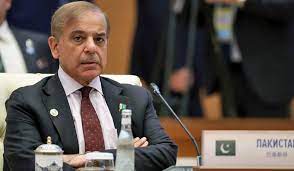Islamabad, Aug 9:Pakistan Prime Minister Shehbaz Sharif was poised on Wednesday to formally recommend the dissolution of the National Assembly to President Arif Alvi to pave the way for the next general elections in the country.
The five-year tenure of the 342-member lower house of Parliament was scheduled to expire on August 12.
“On the completion of the incumbent government’s term, I would send a summary to the President of Pakistan for dissolution of the National Assembly by Wednesday and then an interim government will take over,” Shehbaz said on Tuesday addressing a ceremony.
President Alvi can either issue a notification forthwith to dissolve the assembly or can delay it for 48 hours and after that, it will stand dissolved.
It is for the second time President Alvi is dissolving the assembly. First, in April of the previous year, then-Prime Minister Imran Khan advised its dissolution, which he followed but the move was subsequently overturned by the Supreme Court.
A final meeting of the federal Cabinet would also be held, where the premier will give a round-up of his government’s performance since April last year, Dawn newspaper reported.
A farewell session of the National Assembly will be held at 2 pm and during which the prime minister will address the assembly, the Express Tribune reported.
After the Cabinet meeting and the farewell session, the prime minister expected to move the recommendation for the dissolution. He is also expected to meet opposition leader Raja Riaz for the final round of talks for the appointment of the caretaker Prime Minister.
The 15th National Assembly came into existence following the election held on July 25, 2018, and its first session was inaugurated on August 13. The National Assembly is being dissolved earlier to get more time for holding elections.
The Express Tribune reported that the current National Assembly’s journey has been tumultuous. It weathered an early dissolution attempt and notably, it etched its name in history by becoming the first National Assembly to depose a prime minister through a successful no-confidence vote.
Over the course of its tenure, the assembly witnessed the election of one president, two prime ministers, two speakers, and two deputy speakers. Despite these changes in leadership, a significant portion of its seats remained unoccupied for nearly 14 months, reported the paper. (PTI)
Trending Now
E-Paper


